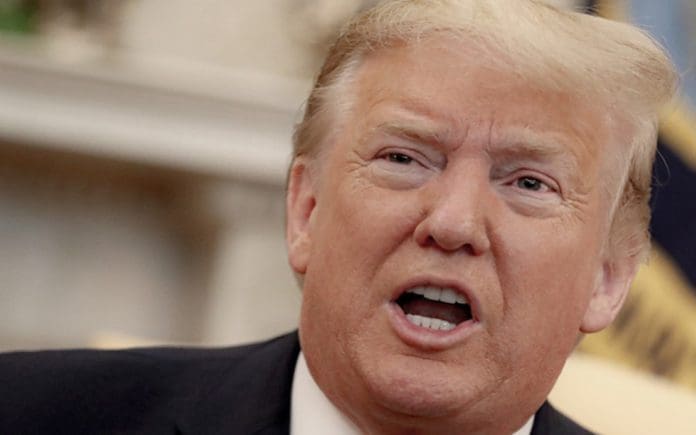President Donald Trump unveiled sweeping new tariffs Thursday evening targeting pharmaceuticals, heavy trucks, and home renovation products, marking a significant escalation of his protectionist trade policies.
The measures include a 100% tariff on branded and patented pharmaceuticals, 50% on kitchen cabinets and bathroom vanities, 30% on upholstered furniture, and 25% on heavy trucks, all taking effect October 1. The announcement was made through Trump’s Truth Social platform.
The pharmaceutical tariff applies to patented drugs unless the producer is building a manufacturing plant in the United States. This condition provides companies with a potential pathway to avoid the punitive duties by committing to domestic production.
The decision prompted immediate criticism from international trading partners. Australian Health Minister Mark Butler responded Friday morning, arguing the tariffs “are not in the American consumers’ interest” and noting that Australia purchases more pharmaceutical products from the United States than it exports there.
Australia faces significant exposure to the pharmaceutical tariffs, with potential impacts described as substantial given the country’s pharmaceutical export industry. The two nations have maintained strong trade relationships despite previous tariff disputes.
Trump justified the heavy truck tariffs under national security provisions, utilizing Section 232 of the 1962 Trade Expansion Act. The 25% levy on imported heavy trucks aims to protect American manufacturers including Peterbilt, Kenworth, Freightliner, and Mack Trucks.
European truck manufacturers face immediate challenges from the new policy. Swedish company Volvo and Germany’s Daimler, which produces Freightliner and Western Star brands, saw their stock prices decline in after-hours European trading following the announcement.
The furniture and home renovation sectors will experience significant disruption. Industry data indicates that imports, primarily from Asian markets, accounted for 60% of all furniture sold in the United States in 2022, including 86% of wood furniture and 42% of upholstered pieces.
Major home goods retailers reacted negatively to the announcement. Shares of Wayfair and Williams Sonoma, both heavily dependent on imported products, declined in after-hours trading as investors assessed the potential impact on business operations and consumer prices.
The new tariffs build upon existing trade restrictions, including a 10% baseline tariff imposed on most goods from all countries that took effect in April 2025. Trump’s administration has layered additional duties on specific nations based on trade balance calculations and other policy considerations.
Economic analysts express concern about inflationary pressures resulting from the tariff expansion. The United States economy, while robust, remains sensitive to import cost fluctuations that typically translate into higher consumer prices across affected product categories.
The timing of the announcement, just days before the October 1 implementation date, provides limited adjustment period for affected industries and trading partners. Companies must quickly assess supply chain alternatives and pricing strategies to navigate the new trade environment.
Trump has positioned these measures within his broader agenda to reduce American import dependence and stimulate domestic manufacturing. The administration argues that tariff-induced cost increases will encourage companies to relocate production facilities to the United States, creating jobs and reducing foreign supply chain vulnerabilities.
Critics contend that tariffs function as consumption taxes, ultimately passed to American consumers through higher retail prices. The debate reflects ongoing disagreement about trade policy effectiveness in achieving stated economic objectives.
The pharmaceutical industry faces particular complexity given patent protections and regulatory requirements that make rapid production location changes challenging. Companies must balance tariff avoidance against significant capital investment requirements for new domestic manufacturing facilities.
International trade relationships continue evolving as Trump’s second-term policies take shape. The latest announcements signal continued prioritization of protectionist measures despite concerns from allies and trading partners about global supply chain disruption.
Source: newsghana.com.gh











